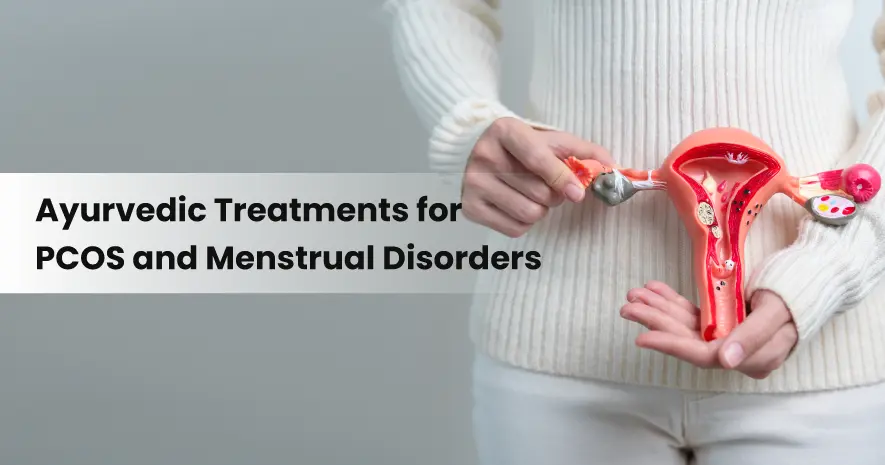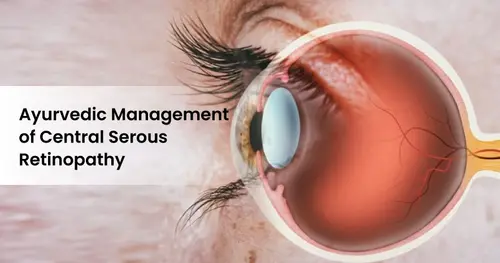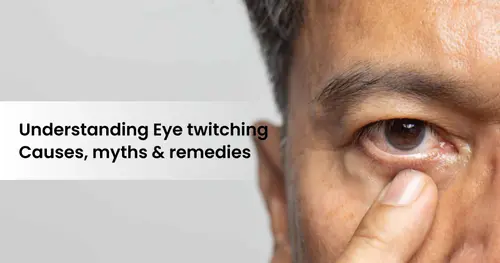
Polycystic Ovary Syndrome (PCOS) and menstrual disorders are among the most common gynecological concerns affecting women of reproductive age. While modern medicine attributes these conditions to hormonal imbalances, insulin resistance, and metabolic dysfunction, Ayurveda provides a holistic perspective, considering them as manifestations of doshic imbalances, primarily involving Vata and Kapha.
Ayurvedic Perspective on PCOS
PCOS does not directly correspond to a single disease in Ayurveda but is understood through various conditions such as Nashtarthava (Amenorrhea – absence of menstruation), Arthavakshaya (Scanty menstruation, oligomenorrhea), Vandhya (Infertility), and Pushpagni Jathaharini (Irregular cycles with excessive hair growth and obesity, resembling PCOS symptoms). PCOS is primarily a Vata-Kapha disorder affecting the Arthavavaha Srotas (reproductive channels), with involvement of Medovaha Srotas (fat metabolism) and Agnimandya (digestive fire impairment).
Causes of PCOS and Menstrual Disorders in Ayurveda
Ayurveda describes multiple etiological factors contributing to these conditions. Improper diet, known as Mithya Ahara, such as excessive intake of heavy, cold, sweet, and processed foods, leads to Kapha aggravation and metabolic dysfunction. Unhealthy lifestyle choices, referred to as Mithya Vihara, including sedentary habits, lack of physical activity, excessive stress, and irregular sleep patterns, contribute to hormonal imbalances. Genetic predisposition, known as Beejadosha, results in defects in the reproductive tissue (Beeja Bhaga Avayava Dushti), leading to hormonal irregularities. Impaired digestion and metabolism, or Agnimandya, cause the accumulation of toxins (Ama), which negatively affect reproductive health. Furthermore, chronic mental and emotional stress aggravates Vata dosha, leading to menstrual irregularities.
Ayurvedic Treatment Approaches for PCOS and Menstrual Disorders
Nidana Parivarjana (Eliminating the Root Cause)
The first step in treatment is avoiding causative factors like unhealthy diet, sedentary lifestyle, excessive stress, and irregular eating and sleeping habits.
Panchakarma (Detoxification Therapies)
Panchakarma is highly effective in PCOS management by detoxifying the body and balancing Vata and Kapha doshas. Vamana (Therapeutic Emesis) is useful in Kapha-dominant PCOS, eliminating excess mucus, fat, and toxins. Virechana (Purgation Therapy) helps balance Pitta and Vata, regulating metabolism and improving hormone function. Basti (Medicated Enema Therapy) is administered in two forms: Niruha Basti (Decoction enema), which regulates Apana Vayu and enhances ovarian function, and Anuvasana Basti (Oil enema), which nourishes reproductive tissues and helps in treating infertility. Uttara Basti (Intrauterine Basti) is a specialized therapy for gynecological disorders, directly affecting the uterus and ovaries. Nasya (Nasal Therapy) is recommended to balance the Hypothalamic-Pituitary-Ovarian axis, regulating hormone production.
Shamana Chikitsa (Pacification Therapy with Herbs and Medicines)
The administration of herbal formulations is an essential part of Ayurvedic management. Certain herbs help boost metabolism, such as Triphala, which detoxifies and regulates metabolism, Guggulu, which improves insulin sensitivity and fat metabolism, and Shilajit, which enhances reproductive and metabolic functions. Reproductive tonic herbs like Ashwagandha help reduce stress and balance cortisol and androgens, Shatavari enhances ovarian function and regulates menstrual cycles, and Guduchi detoxifies and regulates immunity and metabolism. Hormonal balance herbs such as Turmeric (Haridra) reduce inflammation and insulin resistance, Aloe Vera (Kumari) regulates menstrual flow, and Lodhra helps in hormonal regulation and treating excessive bleeding.

Dietary Recommendations (Pathya Ahara)
Diet plays a crucial role in managing PCOS and menstrual disorders. Foods that should be included in the diet are whole grains such as Yava, Shali, and Mudga, warm and light foods with bitter and astringent tastes, and hormone-balancing ingredients like sesame seeds, flaxseeds, and fenugreek. Fresh vegetables and fiber-rich foods improve digestion and metabolic health. On the other hand, foods to be avoided include excessively sweet, heavy, and processed foods, dairy products (especially for those with lactose intolerance), and cold and refrigerated foods that increase Kapha dosha.
Lifestyle Modifications (Pathya Vihara)
An active lifestyle is vital for managing PCOS. Regular physical activity, including Yoga and Pranayama, plays a crucial role in regulating metabolism and hormonal balance. Reducing stress through meditation and mindfulness enhances mental well-being. Following Dinacharya (daily routine), such as waking up early, having regular meals, and maintaining a proper sleep schedule, significantly improves overall health. Avoiding excessive screen time and practicing good sleep hygiene further aids in hormonal balance and menstrual regularity.
Lifestyle and External Therapies
Apart from internal treatments, external therapies are beneficial in managing PCOS. Abhyanga (oil massage) with warm herbal oils like Dhanwantharam Thailam improves circulation and metabolism. Swedana (herbal steam therapy) aids in eliminating toxins and promoting hormonal balance. Specific yoga postures also enhance reproductive health. Baddha Konasana (Butterfly Pose) enhances blood circulation in pelvic organs, Dhanurasana (Bow Pose) improves ovarian function, and Ustrasana (Camel Pose) stimulates endocrine glands.
Ayurveda offers a comprehensive and holistic approach to managing PCOS and menstrual disorders by addressing the root cause rather than just the symptoms. By integrating detoxification therapies, herbal remedies, dietary modifications, and lifestyle changes, Ayurvedic treatment can help restore hormonal balance, enhance fertility, and improve overall well-being. A personalized approach under the guidance of a qualified Ayurvedic practitioner is recommended for the best results. With proper adherence to Ayurvedic principles, women can achieve a balanced reproductive system and a healthier life.
FAQ's
1. How does Panchakarma help in treating PCOS?
Panchakarma is a detoxification therapy that cleanses the body of toxins (Ama), which may contribute to hormonal imbalances. By using treatments like oil massages (Abhyanga), steam therapies (Swedana), and enemas (Basti), Panchakarma can help reduce inflammation, improve digestion, balance hormones, and support the overall reproductive system.
2. How long does it take for Ayurvedic treatments to show results in PCOS and menstrual disorders?
The time frame for seeing results depends on the severity of the condition and the consistency with which the treatments are followed. Generally, visible improvements in the menstrual cycle, skin, and weight management can be seen in 2 to 3 months of regular Ayurvedic treatment.
3. Is it necessary to follow Ayurvedic treatment for a long period?
Ayurvedic treatment is often most effective when followed consistently over time. Many women with PCOS or menstrual disorders benefit from long-term management, including lifestyle modifications, diet changes, and seasonal detoxes, to maintain hormonal balance and overall health.
4. Can Ayurvedic treatments be used during pregnancy for women with PCOS?
Yes, Ayurvedic treatments can be used during pregnancy, but they must be approached with caution and under the supervision of a qualified practitioner. Certain Ayurvedic herbs may help support fertility and pregnancy health, such as Shatavari and Ashoka for uterine health. However, not all herbs are suitable during pregnancy, so it’s crucial to avoid any treatment without professional guidance. Regular prenatal care is also essential during this time.
5. What role does the mind-body connection play in Ayurvedic treatments for PCOS?
In Ayurveda, the mind-body connection is considered central to overall health. Stress and emotional imbalances are believed to exacerbate PCOS symptoms. Ayurveda addresses this by recommending practices like meditation, yoga, and Pranayama to calm the mind, reduce stress, and restore hormonal balance. Emotional health is thought to influence the physical body, and by cultivating peace of mind, women can improve their PCOS symptoms.

January 12, 2026

January 09, 2026

January 06, 2026

December 30, 2025

December 22, 2025

December 17, 2025
We use cookies that are necessary for the smooth operation of the website, to improve our website and to display advertising relevant to you on social media platforms and partner websites. By clicking "Accept all", you agree to the use of cookies for convenience features and statistics and tracking. You can change these settings again at any time. If you do not agree, we will limit ourselves to technically necessary cookies. For more information, please see our privacy policy .